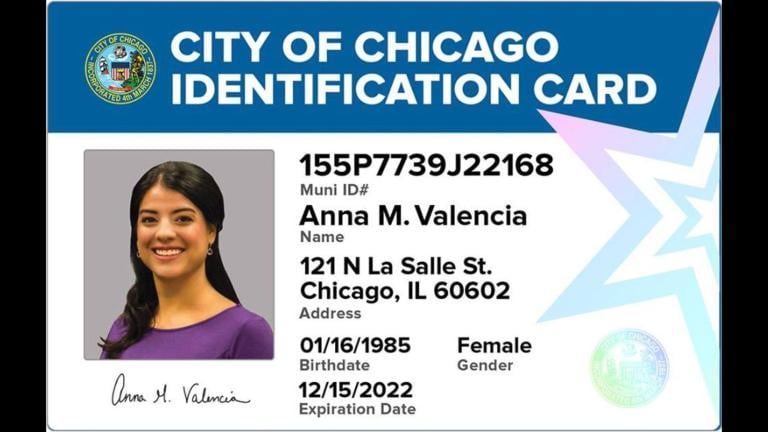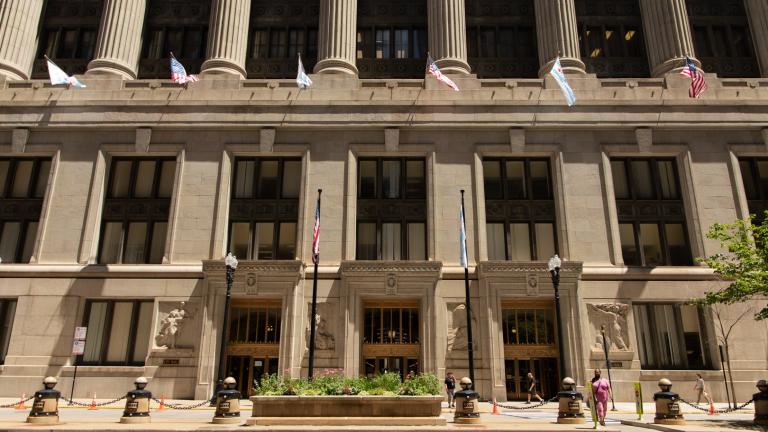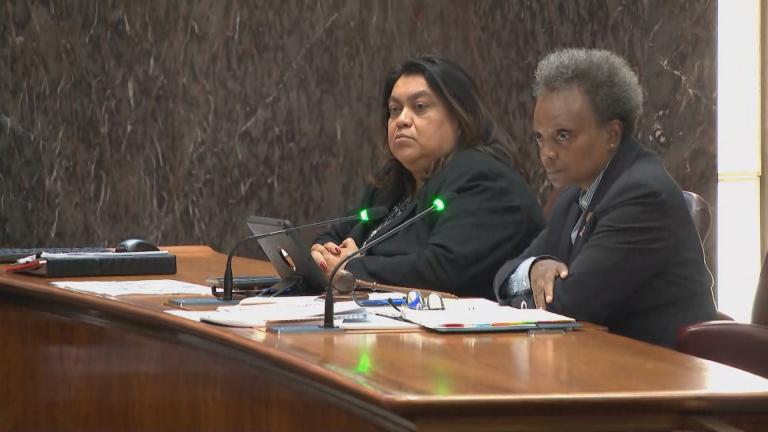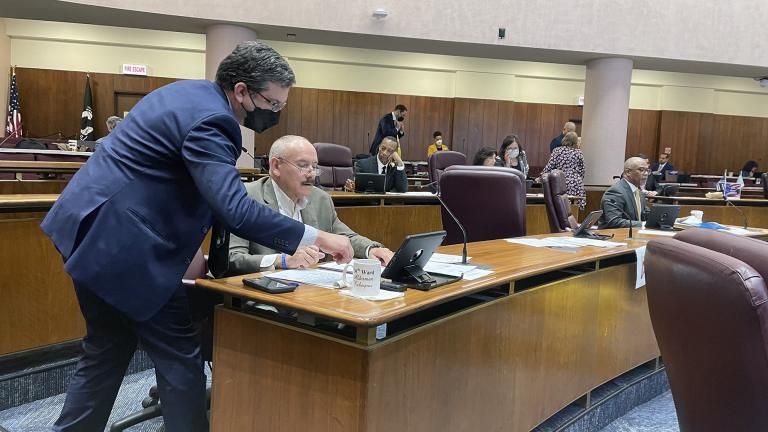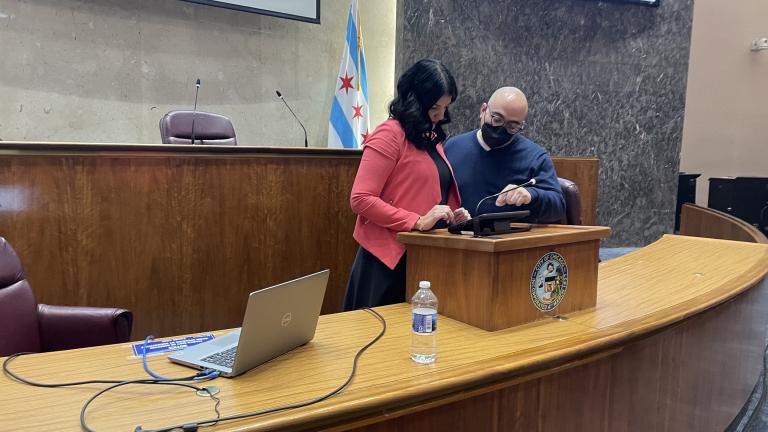Video: City Clerk Anna Valencia joins “Chicago Tonight” to discuss CityKey IDs, Mobile City Hall events and more. (Produced by Emily Soto)
It will be much more difficult for migrants sent to Chicago from the southern border to get a municipal identification card before the end of the year after City Clerk Anna Valencia canceled the remaining events designed to bring City Hall into the city’s neighborhoods.
More than 1,000 people – mostly migrants – lined up hours before the city clerk’s event on Oct. 12 at Gill Park in Wrigleyville was scheduled to start, overwhelming the 15-person staff, Valencia told WTTW News.
“It was too much to manage,” Valencia said. “You don’t know what’s going to happen when you have that kind of crowd. It didn’t seem like it would be a safe event.”
Valencia said she made the final decision to cancel the Oct. 12 event – before anyone got an ID – after consulting with the Chicago Police Department brass and leaders of the Chicago Park District, which typically host the Mobile City Hall events at park district field houses.
The clerk’s office canceled the remaining two Mobile City Hall events – in Lincoln Park and Brighton Park – scheduled for Wednesday and Thursday, bringing the program to an early end for 2023.
A spokesperson for Mayor Brandon Johnson declined to respond to a question from WTTW News about whether the mayor agreed that the Mobile City Hall events posed such a serious security threat that they should have been canceled for the rest of the year.
“The program is unsustainable in its current form,” said Valencia, adding that she was focused on crafting the future of the CityKey program.
Valencia said she did not ask the mayor’s office or other city departments to provide additional staff or resources to allow the scheduled Mobile City Hall events to take place, or to add additional events to meet the demand for the city ID cards from the migrants.
For many of the more than 19,000 migrants who arrived in Chicago after crossing the southern border, getting a city ID, known as a CityKey, is the first step toward putting down roots in Chicago.
The clerk’s office plans to provide an additional two dozen opportunities for Chicagoans to get municipal ID cards through the end of the year through partnerships with community groups and at city-run shelters, said Diana Martinez, a spokesperson for Valencia.
However, those events will not be announced in advance and are not open to the public because of security concerns, and there is no way for individuals to ensure that they will be able to get a CityKey unless they happen to be present when the event occurs.
City ID cards are not available at City Hall or the clerk’s other offices.
City officials have issued 150% more municipal ID cards so far in 2023 than in all of 2021 and 17% more than in all of 2022, according to data obtained from the city clerk’s office by Datamade Co.’s Forest Gregg through a Freedom of Information Act request.
Chicagoans can use the cards to ride the CTA, check out books from the Chicago Public Library and get discounts from local businesses. Anyone who lives in Chicago is eligible for the card, as long as they can provide official documents that include their photo, date of birth and proof they live in Chicago.
The city clerk’s 2024 budget for the municipal identification card program is set to grow 40% to $907,000, as compared with the 2023 budget, according to the spending plan proposed by Johnson.
Valencia said she would like to create an online portal to make it possible for people to apply for the ID card without having to wait in long lines — but was told by budget officials that the city did not have enough resources to fund that effort.
Valencia said negotiations with the mayor’s office to fund that effort are ongoing, although it is not clear that the city could quickly set up an online portal that could review applicants’ documentation and issue ID cards to people who have no fixed address.
In addition, Valencia would also face questions about how the CityKey program would handle the applicants’ personal information after the ID card is issued, since the program is prohibited from keeping personally identifiable information for fear it could be used by federal immigration agents as part of a crackdown designed to deport undocumented immigrants.
The Chicago City Council greenlighted the municipal identification card program in 2017, at a time when threats from former President Donald Trump to deport undocumented immigrants prompted concern from city leaders that they would not be able to access city services.
Contact Heather Cherone: @HeatherCherone | (773) 569-1863 | [email protected]

